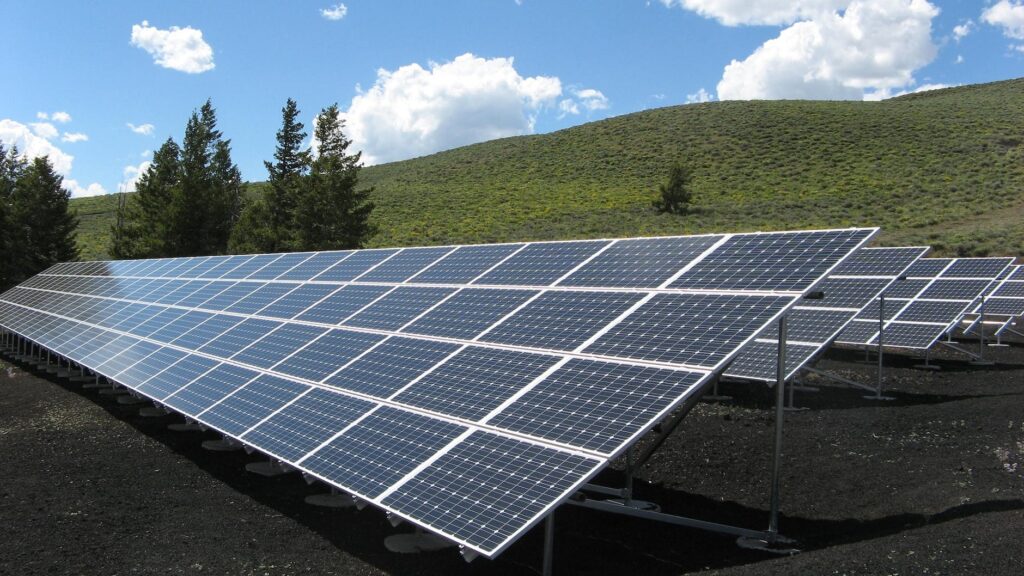
Photo by Pixabay on <a href="https://www.pexels.com/photo/black-and-silver-solar-panels-159397/" rel="nofollow">Pexels.com</a>
There is much hype surrounding solar energy, and knowing if it is a good investment can be challenging. But solar panels can pay off in the long run, even though the economy and solar industry will be less stable in 2022.
So, can solar panels save you money? Is solar energy a good investment? What are the costs of installing solar panels on a house?
Well, it all depends. You can save money in the long run when you install a solar panel system from a reputable company. Additionally, solar solutions are available to renters, which can save them even more money.
To save money, you’ll want to consider factors like the amount of sunshine your area receives, your electricity provider’s rates, and the size of your pool.
While the average cost to install a solar system depends on several factors, energy experts say that the average installation cost is around $20,000—an amount that tax benefits and various financing options can partially offset.
Is investing in Solar worth it?
When you install solar panels on your roof, you create renewable energy that can help you reduce or eliminate your need for power.
The two main factors influencing the savings from going solar are the cost of obtaining power from the grid and producing your energy with solar panels.
If you spend more on your power bills than your solar bills, switching to solar will save you money.
A payback period is how long it takes to get back what you put into a solar panel system at the beginning. Considering the size of your system, you can save money on your energy bills each month.
It might be hard to figure out how long it will take for an investment to pay for itself because the initial costs are hard to predict and the cost of energy changes depending on where you live.
Solar panels usually pay for themselves in six to ten years. But then again, this is a wide range, as many factors determine how long it takes to pay off a panel and how much you save each month.
How can you save money with Solar?
If your average monthly power bill is high and you live in an area with high energy prices, installing solar panels can be beneficial. In addition, the 26% tax break is still in effect, making solar panels even more cost-effective.
Most solar households may save between $20,000 and $97,000 on their power bill over the lifetime of their solar panel system.
You first need to know your annual energy bill to calculate how much solar panels save on your energy bills.
Note that your savings will depend on where you live, how you use energy now, and how many solar panels you install. In addition, the cost of power significantly impacts solar savings.
There are several other reasons why people choose to invest in solar panels:
- The cost of electricity is not decreasing, despite claims to the contrary.
- As the prices of solar panels have fallen, the cost of installing them has also dropped.
- Second, the installation of solar panels can provide long-term financial benefits.
- Reducing your energy use on your monthly electricity bill can help save money on your pension plan.
- Third, solar panels last long and only require a little maintenance.
How to estimate when to break even
Determining initial investment
Start by calculating your initial investment for your solar panel system. It should include system prices, installation costs, and other fees in your calculations. Then, verify local costs and move on from there.
Tax incentives
A solar tax credit is available to homeowners who invest in solar systems. This credit is available once and depends on the system’s cost, not the system’s total cost.
Several utilities offer incentives and rebates for the installation of solar electricity. Check with your local energy provider to see if any incentives are available.
Your electric bill
This estimate suggests you will rely exclusively on solar power for your energy needs. Some homeowners can get all the energy they need from the sun, while others must buy energy from the grid to fill in the gaps.
However, this will depend on the number of solar panels installed, how much energy is used regularly, and other factors.
Calculate
To calculate how long your savings will take to equal your regular power bill, divide your original investment by the $1,500 you regularly pay the power provider.
As previously mentioned, the payback time would be 6–10 years. It may seem like a long time, but solar panels typically last 25 years.
Conclusion
Now you know that you could save money with solar. A solar panel system aims to save you money and provide a quick return on your investment. These benefits come from increased property prices, decreased electricity bills, and the federal tax credit.
If energy prices are not falling, investing in solar energy is an excellent way to save money and reduce carbon emissions.
We recommend anyone interested in solar energy to use a trusted solar contractor – visit website.
Overall, solar can be a costly prospect, especially regarding initial expenses. But on the other hand, the long-term efficiencies they bring can balance the initial outlay and save money with solar in future years.









